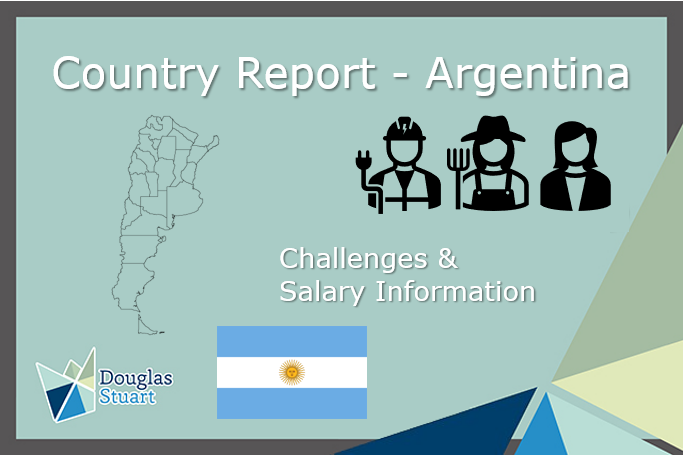It’s no secret that Argentina – indeed, most countries in South America – face challenging times as we head into 2022.
With a GDP of roughly US$450 billion, Argentina is one of the largest economies in Latin America, yet one of the most fragile.
Argentina has immense natural resources in energy (gas and lithium reserves, great potential for renewable energy) and agriculture (leading food production and livestock industries). However, Argentina’s historical volatility of both politics and economic growth has seriously undermined the country’s development.
According to the World Bank figures, urban poverty in Argentina reached almost 41% of the population in first quarter 2021 and approximately 11% Argentines live in extreme poverty. Poverty in childhood, for children under 14 years old, is at 54%.
At end 2021, the inflation rate will sit at approximately 50%; unemployment at almost 10%. In response, the national government has implemented tax breaks, further minimum wage increases and adjustments to benefits to aid the workforce. Latest additions and adjustments include:
- An increase to the country’s minimum wage to ARS 31,104 (US$316) as of September 2021 and to ARS 31,938 ($324) October 2021. In February 2022, a further increase is planned, to ARS 32,616 ($331). As a result, the country’s minimum wage will have increased by 55.3% in 2021;
- Workers who receive a gross monthly salary of up to ARS 175,000 (US$ 1,776) will be tax-free. Additionally, the complementary annual wage (13th month bonus) will also not be taxed. Until now, the floor on which the tax was paid was ARS 150,000 (US$1,522.5).
Whilst some work is underway to contain the damage caused by years of neglect and COVID-19, the short- to mid-term outlook is ‘mildly pessimistic’ at best.
Download our ‘Argentina Country Report‘ for more details about the current employment landscape in Argentina.
Contact: consulting@douglas-stuart.com / +44 (0) 1625 914 105 - to begin the conversation on how this will impact your company’s Argentinian talent attraction challenges in 2022.
Further country reports to follow.


